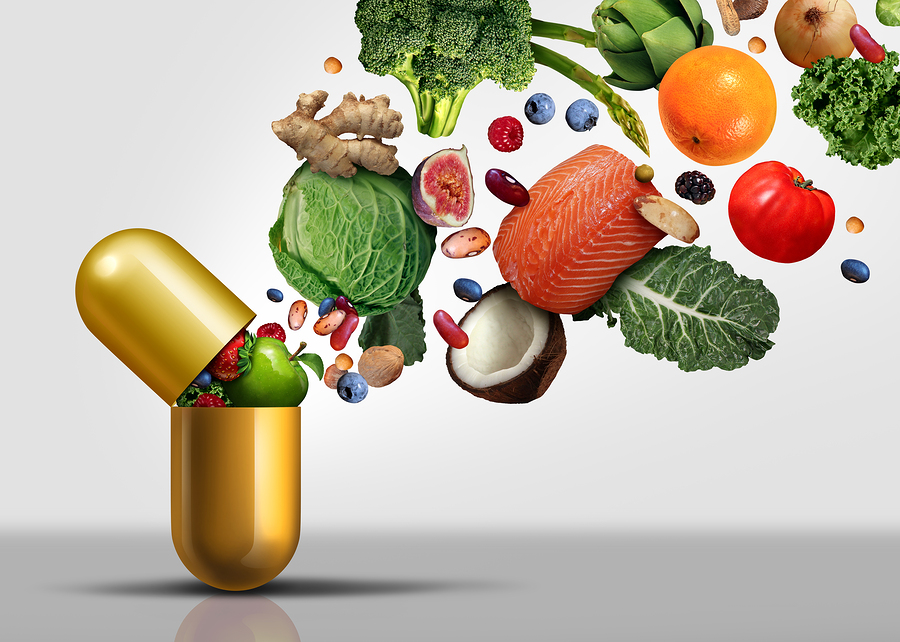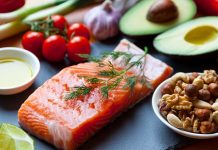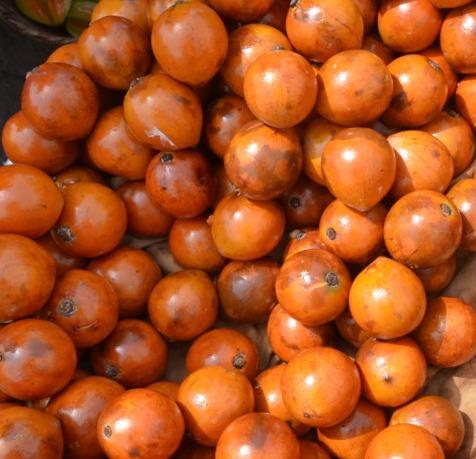
Food is any nutritious substance that people or animals eat or drink or that plants absorb in order to maintain life and growth. Nutrition, on the other hand, has been defined as the biochemical and physiological process by which an organism uses food to support its life. It provides organisms with nutrients, which can be metabolized to create energy and chemical structures. Failure to obtain sufficient nutrients causes malnutrition.
Nutrition is also the study of nutrients in food, how the body uses them, and the relationship between diet, health, and disease. It also focuses on how people can use dietary choices to reduce the risk of disease, what happens if a person has too much or too little of a nutrient, and how allergies work.
Nutrients provide nourishment. Proteins, carbohydrates, fat, vitamins, minerals, fibre, and water are all nutrients. If people do not have the right balance of nutrients in their diet, their risk of developing certain health conditions increases.
Macronutrients
Macronutrients are nutrients that people need in relatively large quantities.
Carbohydrates
Sugar, starch, and fibre are types of carbohydrates.
Sugars are simple carbs. The body quickly breaks down and absorbs sugars and processed starch. They can provide rapid energy, but they do not leave a person feeling full. They can also cause a spike in blood sugar levels. Frequent sugar spikes increase the risk of type 2 diabetes and its complications.
Fibre is also a carbohydrate. The body breaks down some types of fibre and uses them for energy; others are metabolised by gut bacteria, while other types pass through the body.
Fibre and unprocessed starch are complex carbs. It takes the body some time to break down and absorb complex carbs. After eating fibre, a person will feel full for longer. Fibre may also reduce the risk of diabetes, cardiovascular disease, and colorectal cancer. Complex carbs are a more healthful choice than sugars and refined carbs.
Proteins
Proteins consist of amino acids, which are organic compounds that occur naturally.
There are 20 amino acids. Some of these are essential, which means people need to obtain them from food. The body can make the others.
Some foods provide complete protein, which means they contain all the essential amino acids the body needs. Other foods contain various combinations of amino acids.
Most plant-based foods do not contain complete protein, so a person who follows a vegan diet needs to eat a range of foods throughout the day that provides the essential amino acids.
Fats
Fats are essential for: lubricating joints, helping organs produce hormones, enabling the body to absorb certain vitamins, reducing inflammation, preserving brain health.
Too much fat can lead to obesity, high cholesterol, liver disease, and other health problems. However, the type of fat a person eats makes a difference. Unsaturated fats, such as olive oil, are more healthful than saturated fats, which tend to come from animals.
Water
The adult human body is up to 60 per cent water, and it needs water for many processes. Water contains no calories, and it does not provide energy.
Many people recommend consuming two litres, or eight glasses, of water a day, but it can also come from dietary sources, such as fruits and vegetables. Requirements will also depend on an individual’s body size and age, environmental factors, activity levels, health status, and so on.
Micronutrients
Micronutrients are essential in small amounts. They include vitamins and minerals. Manufacturers sometimes add these to foods. Examples include fortified cereals and rice.
Minerals
The body needs carbon, hydrogen, oxygen, and nitrogen. It also needs dietary minerals, such as iron, potassium, and so on.
In most cases, a varied and balanced diet will provide the minerals a person needs. If a deficiency occurs, a doctor may recommend supplements.
Here are some of the minerals the body needs to function well:
Potassium
Potassium is an electrolyte. It enables the kidneys, the heart, the muscles, and the nerves to work properly. The 2015–2020 Dietary Guidelines for Americans recommend that adults consume 4,700 milligrams (mg) of potassium each day.
Too little can lead to high blood pressure, stroke, and kidney stones.
Too much may be harmful to people with kidney disease.
Avocados, coconut water, bananas, dried fruit, squash, beans, and lentils are good sources.
In a perfect world, the human body would indeed get all the nutrients it needs from food.
However, processed foods have been stripped of much of their nutrients content. (Continues next edition).
References:
Google, Don Colbert, MD: 7 Pillars of Health, Wikipedia
Mrs Chima Ejimofor is the Lead Partner of Infinite Health Consult, and is available for the purchase of Forever Living Nutritional Supplements, Health Talks and Wellness Seminars. She is based in Lagos, Nigeria. Telephone/WhatsApp: 07033179632, email: infinitehealthconsult@gmail.comS










